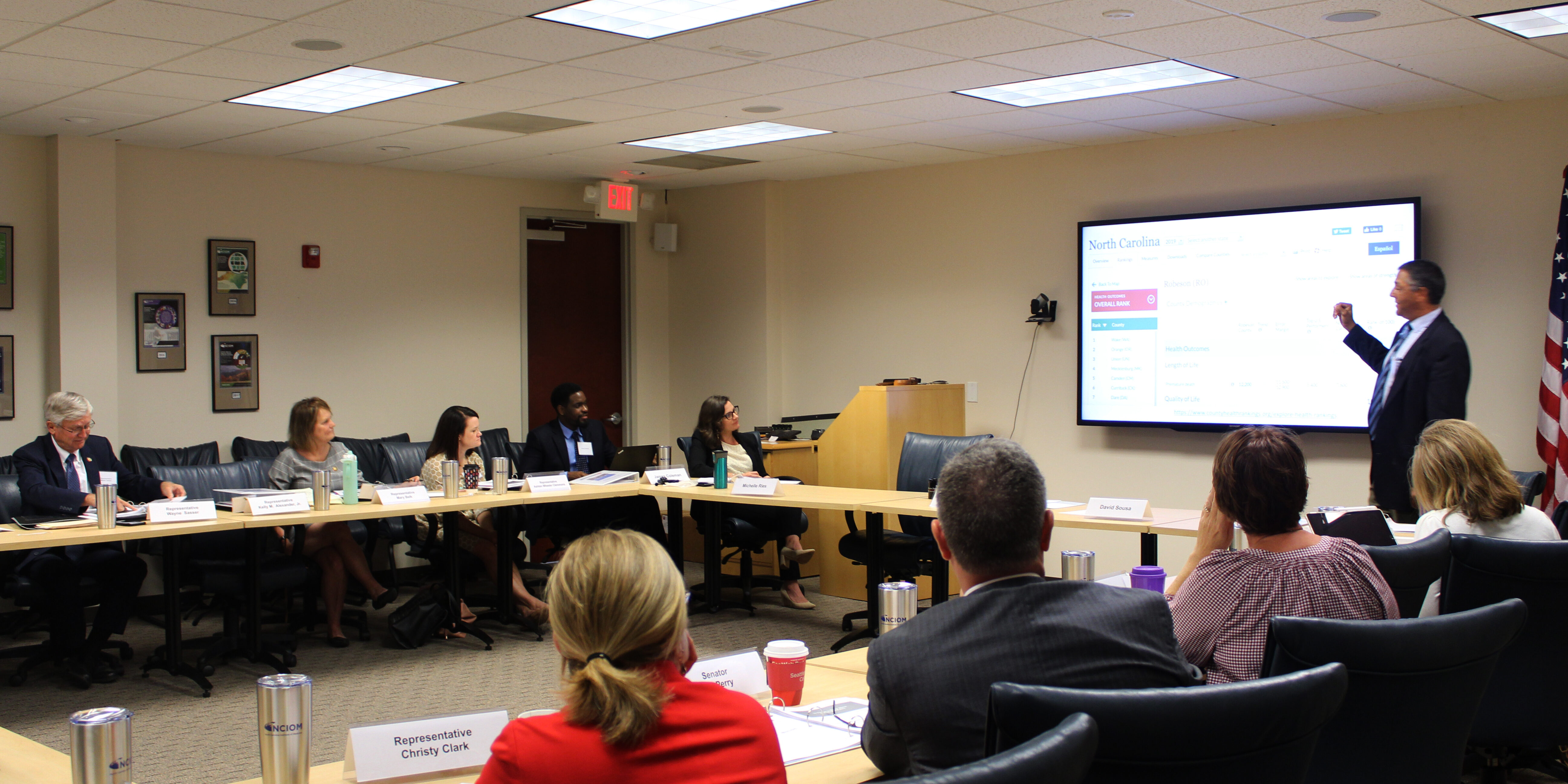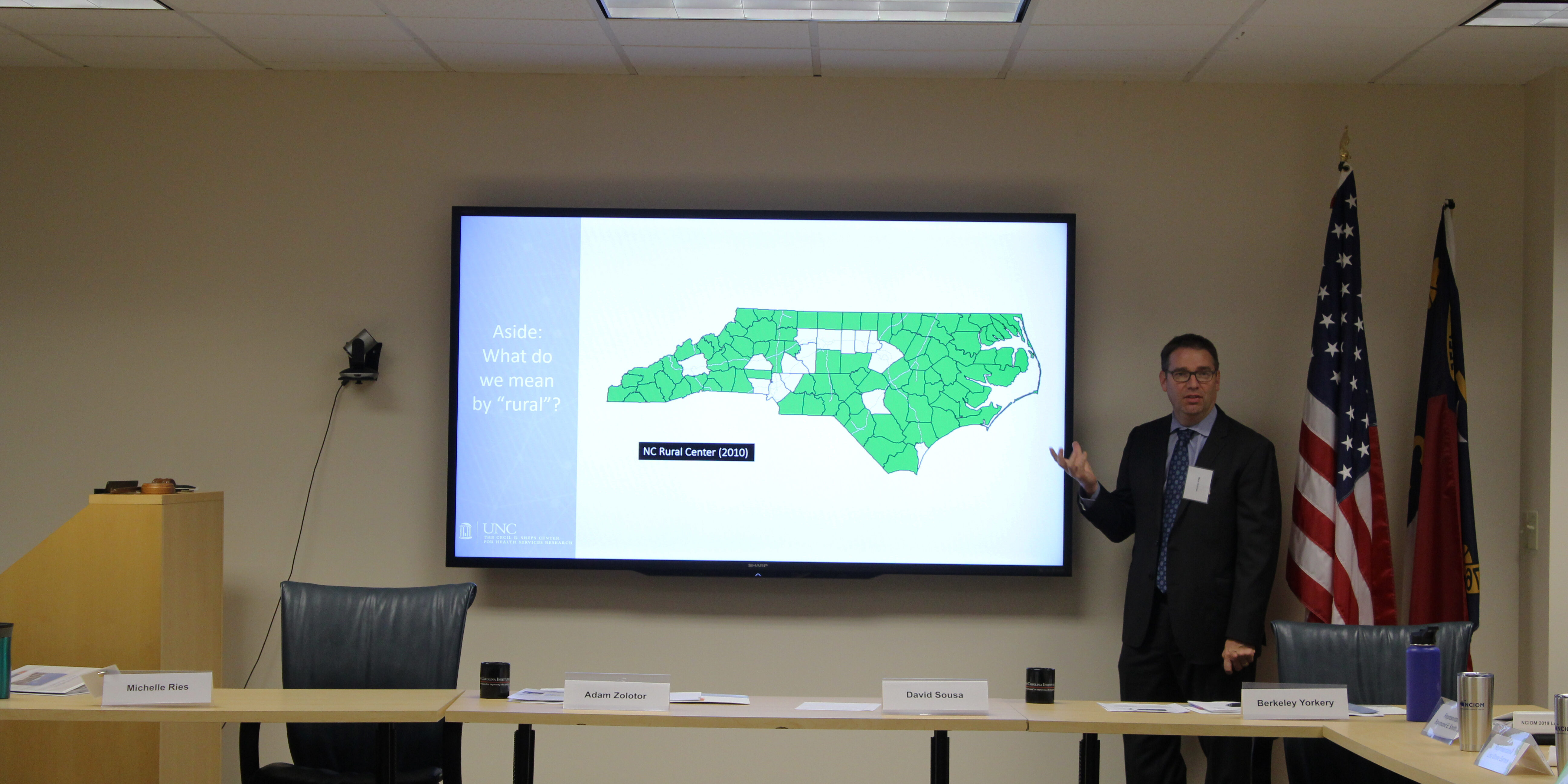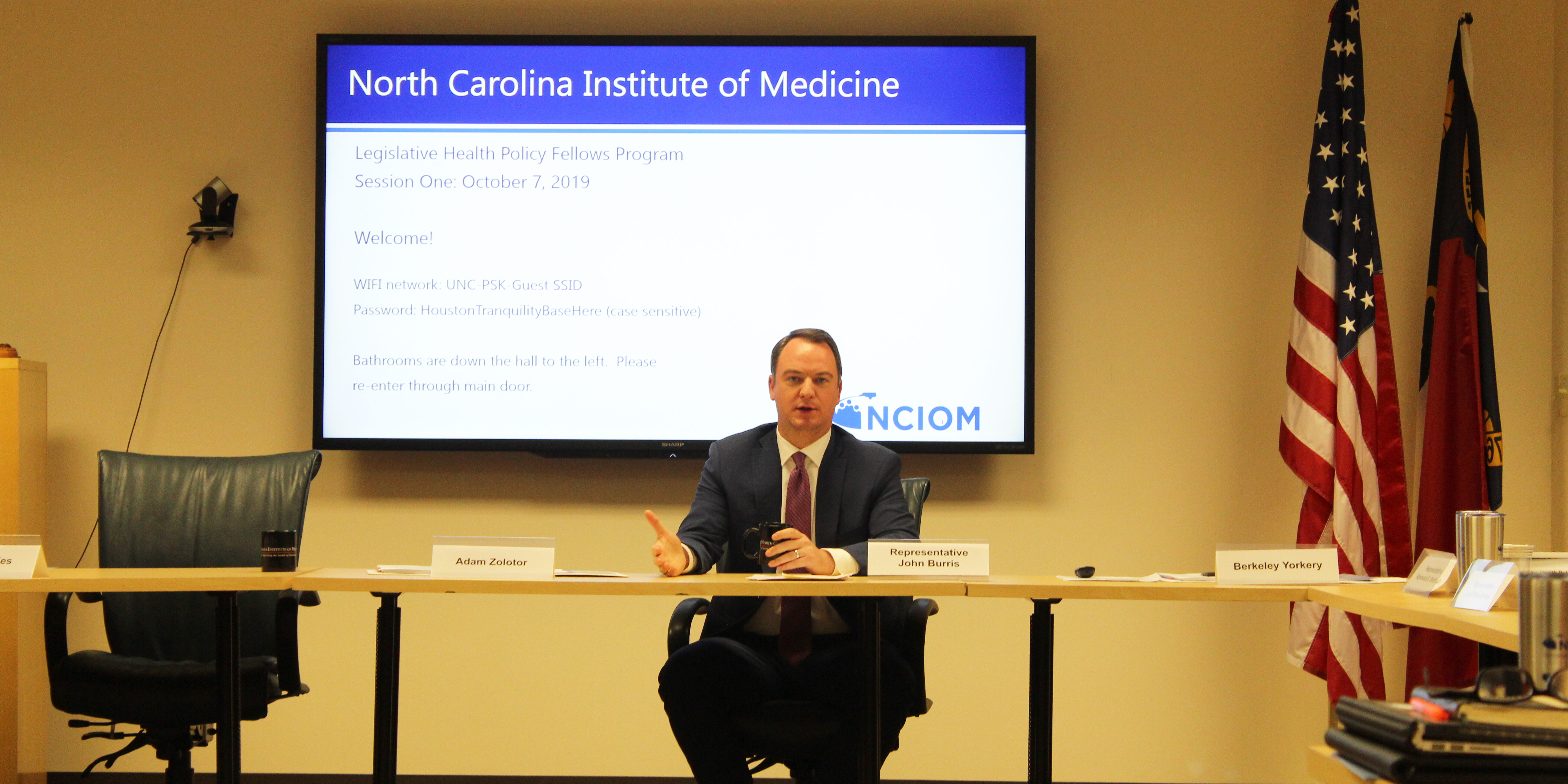


On Monday, October 7, the North Carolina Institute of Medicine welcomed its second class of Legislative Health Policy Fellows, a program for members of the North Carolina General Assembly who want to learn more about health policy and issues related to policymaking around health care.
David Sousa, chief operating officer and general counsel at Curi and board chair of the NCIOM, kicked off the day-long session with an introduction of the work of the NCIOM, the LHPF program, similar programs in other states, and a systems thinking approach to health policy.
Participants learned about the drivers of health – also sometimes called the social determinants of health – from Ronny A. Bell, PhD, professor and chair of the Department of Public Health at East Carolina University. He explained how social, economic, behavioral, and community factors impact health, then facilitated a discussion giving GA members the opportunity to learn more.

Mark Holmes, PhD, director of the Cecil G. Sheps Center for Health Services Research at the University of North Carolina at Chapel Hill, then presented a snapshot of health and the economy in North Carolina. He discussed the role of health care financing, infrastructure, and services in the state’s economy, the percent of North Carolina’s budget allotted for health care, the economic impact of health on individuals, and more.
After a break for lunch, Robert Saunders, PhD, research director of payment and delivery reform at the Duke-Margolis Center for Health Policy, provided a broad overview of the U.S. health care system, including health insurance structure, issues of access to care and coverage, and an update on federal legislation. His presentation helped lay the groundwork for an upcoming session on NC Medicaid, North Carolina marketplace plans, behavioral health, and other topics specific to the state.

Participants received a lesson in bipartisan policymaking from Rep. John Burris, former Arkansas state representative and partner at Capitol Advisors Group. He discussed his experience working in the Arkansas legislature, particularly on Medicaid expansion, the legislation that he sponsored along with a bipartisan group of colleagues.
The last presentation of the day came from Berkeley Yorkery, MPP, associate director of the NCIOM, who discussed community health and well-being and updated participants on NCIOM work, including our Task Force on Accountable Care Communities and the development of Healthy NC 2030 metrics.
The day closed with a discussion and debrief facilitated by Michelle G. Ries, MPH, project director at the NCIOM. The LHPF Fellows will convene again in November to discuss the opioid epidemic, accountable care communities, Medicaid, and North Carolina’s public behavioral health system.